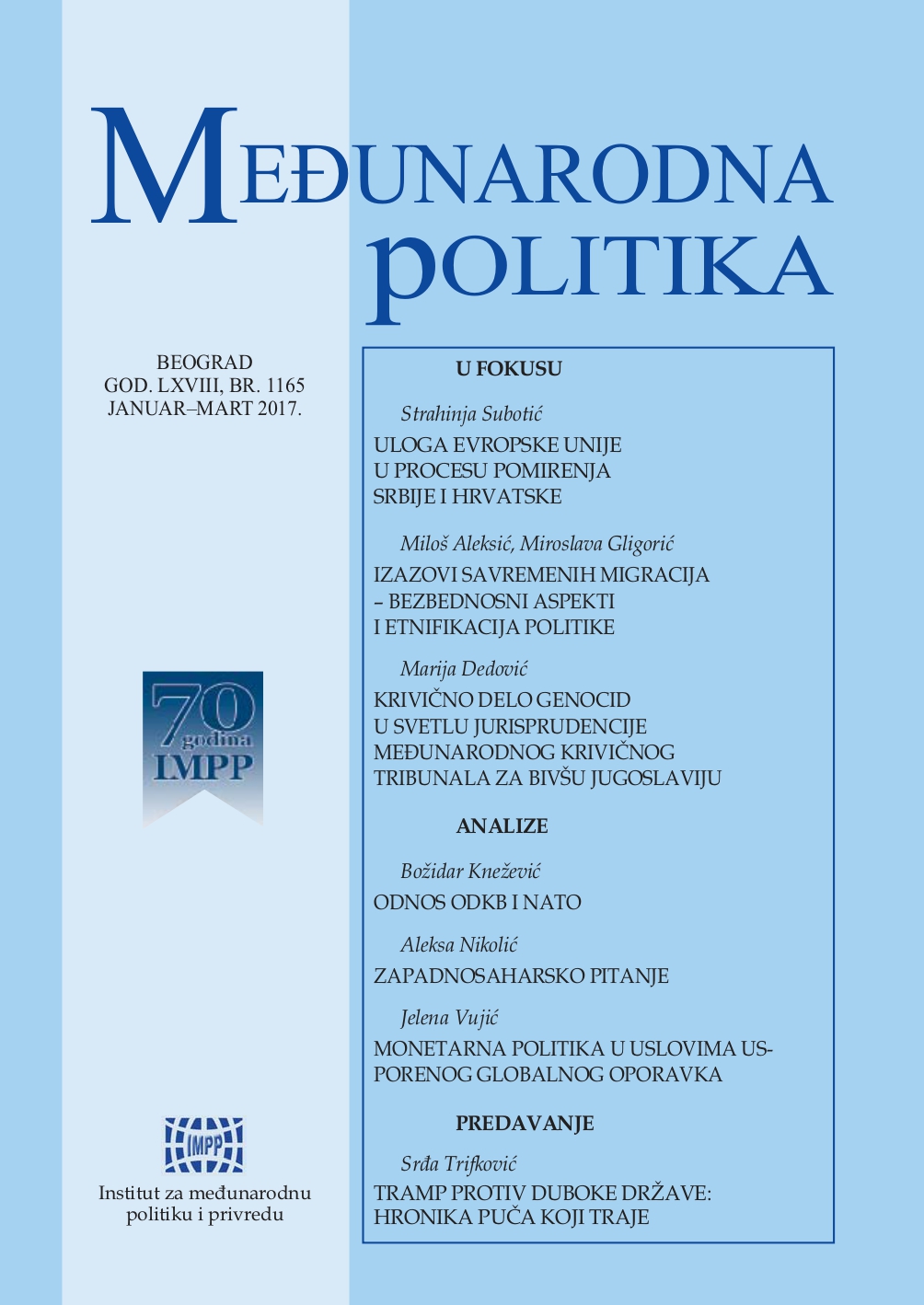Uloga Evropske unije u procesu pomirenja Srbije i Hrvatske
Role of the European Union in the process of reconciliation between Serbia and Croatia
Author(s): Strahinja SubotićSubject(s): EU-Approach / EU-Accession / EU-Development, Peace and Conflict Studies
Published by: Институт за међународну политику и привреду
Keywords: European Union; Serbia; Croatia; Western Balkans; reconciliation; normalization; foreign policy; bilateral issues; eurointegration; transitional justice
Summary/Abstract: The paper analyzes the significance and type of role which the European Union (EU) has had in the context of reaching reconciliation and resolving conflicts between Serbia and Croatia. The author starts with an assumption that the EU is focused on keeping peace and stability in the Western Balkans, by decreasing the tensions between Serbia and Croatia. However, the question arises how the EU has worked on decreasing these tensions, and how successful it was in achieving this task. Therefore, the emerging issues between Serbia and Croatia are analyzed in the period between 2012 and 2016. The author notices the disruption of relations between Serbia and Croatia after their respective governments changed, thus the starting point of the analysis is the moment when Tomislav Nikolić becomes the president of Serbia in 2012. After analyzing the way the EU has treated the issues which Serbia and Croatia faced, the author comes up with two conclusions. On the one hand, it is not evident that the EU is pressuring both sides to reach a comprehensive dealing with the issues and therefore it is suggested that the EU is not playing a constructive role in reaching reconciliation between Serbia and Croatia. On the other hand, if one focuses on reaching mere normalization of relations and removing problems from the daily political agenda, then one could say that the EU is effective in this position by playing the role of a neutral mediator. Since the author shows that the problems are mostly based on the past, it is concluded that the EU’s strategy for resolving problems was not successful and thus one can expect continued moments of the crisis between Serbia and Croatia.
Journal: Међународнa пoлитика
- Issue Year: 68/2017
- Issue No: 1165
- Page Range: 5-22
- Page Count: 18
- Language: Serbian

